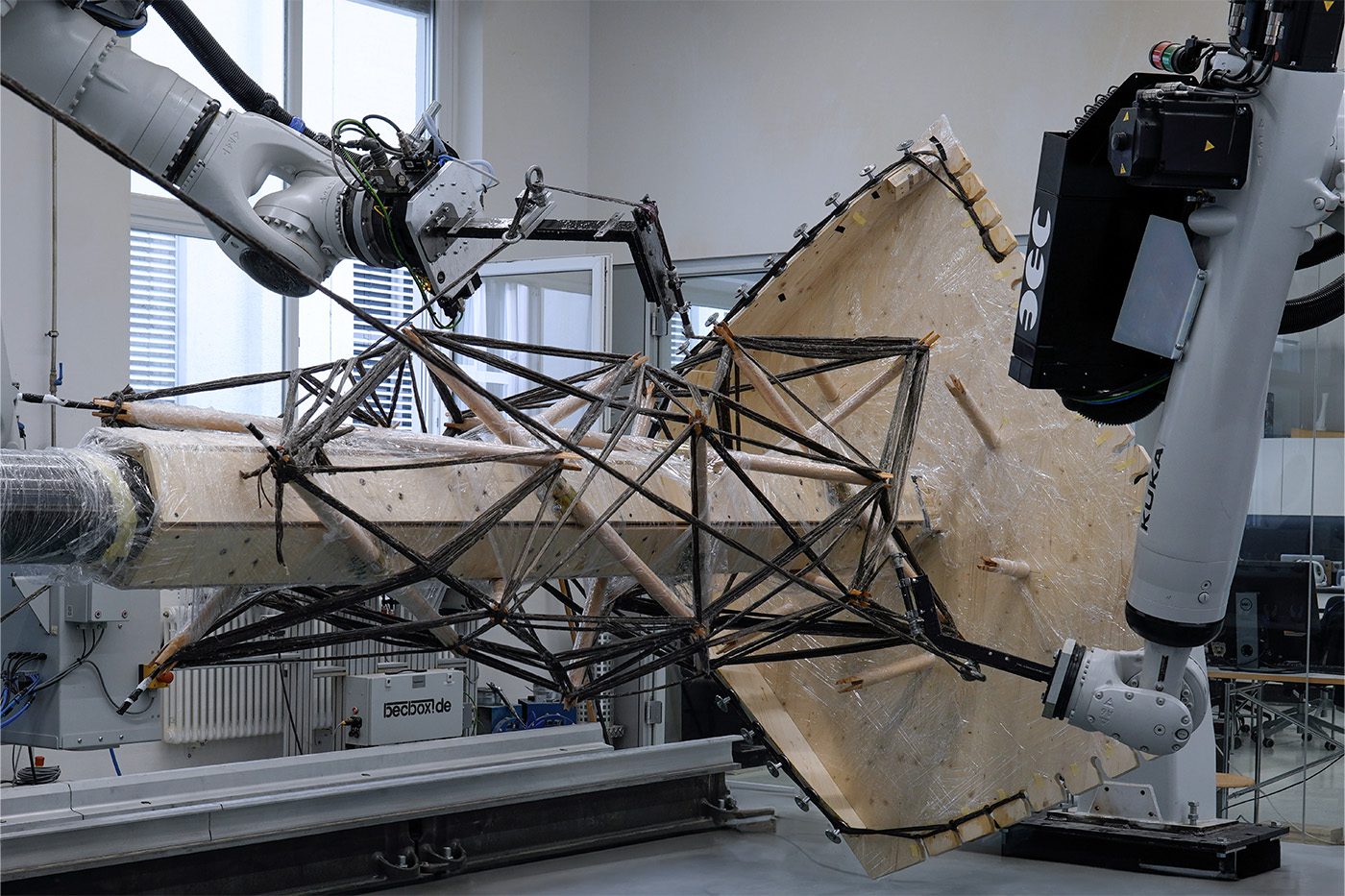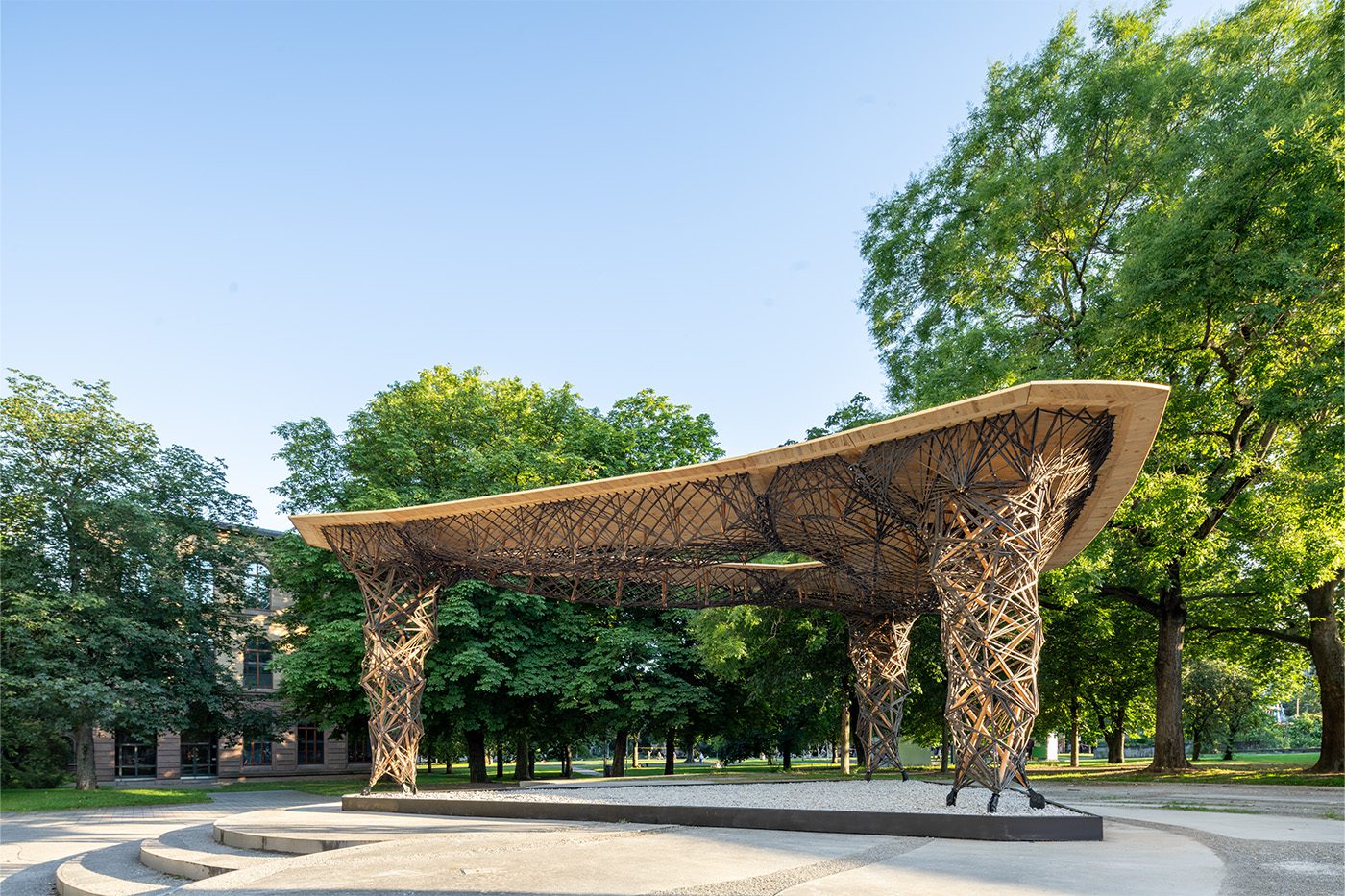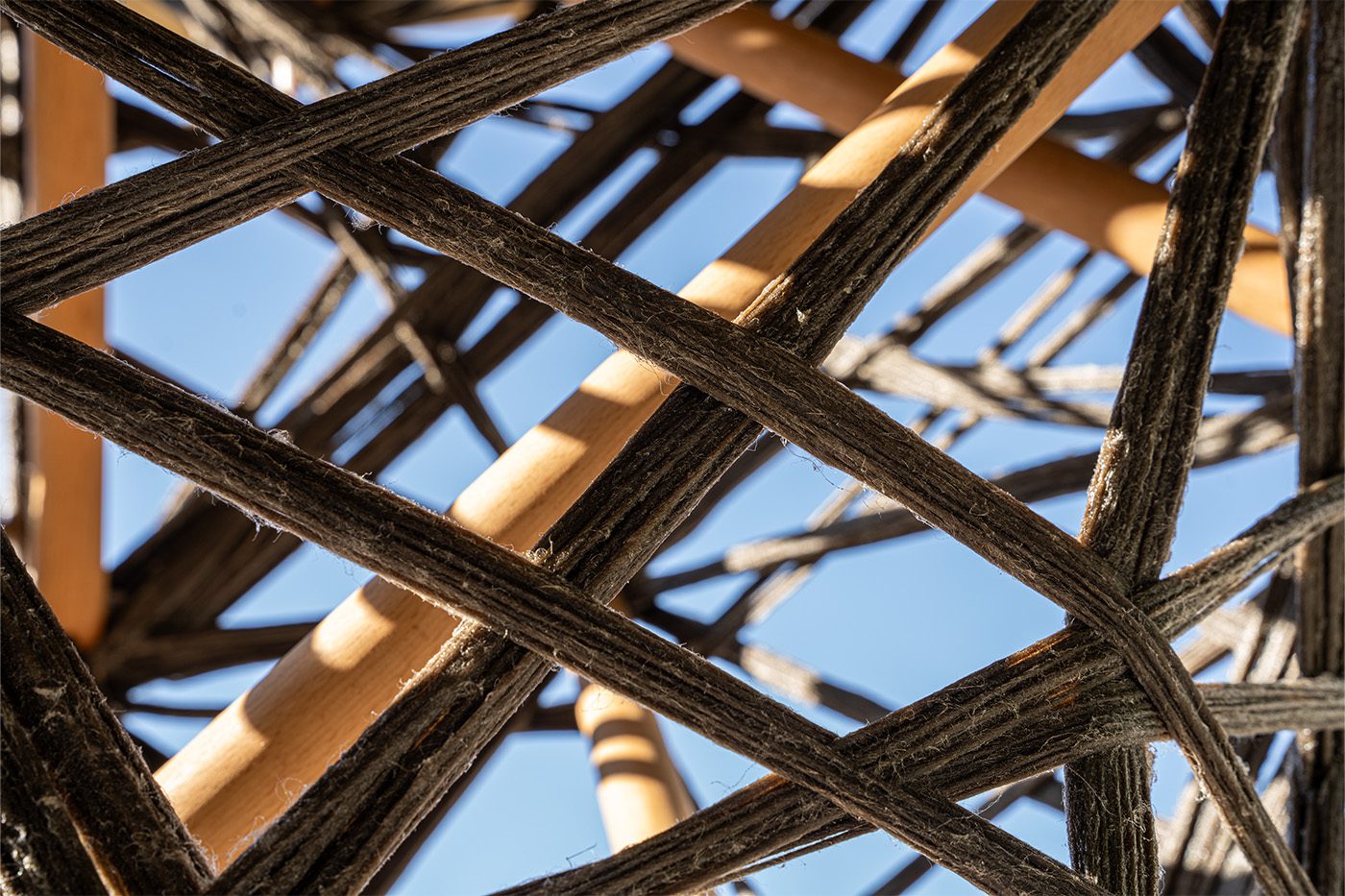Oca Pavilion | 1st floor | Live Lab
The lecture "Building with Fibers: Three Approaches" invites the audience to explore the potential of fibers as a building material through three main approaches: matter, geometry, and fabrication. It's a journey that connects research, practice, and experimentation, revealing how fibers can play a central role in contemporary architecture.
The journey begins with matter, exploring the intrinsic properties of fibers and their potential for transformation into hybrid composites. This dimension involves understanding fiber not only as a natural resource, but also as a construction material with its own performance, capable of responding to structural and environmental challenges. The second approach is geometry, which investigates how different organizational patterns influence the structural performance, aesthetics, and materiality of architectural objects. When fibers are arranged in different directions, densities, and layers, they generate distinct results, expanding the repertoire of architectural solutions and demonstrating how the logic of the material can guide the design process. The third dimension is fabrication, where theory and design meet practice. Through digital and robotic processes, the research demonstrates how fabrication can enhance the expressiveness and efficiency of fibers, enabling the creation of complex yet lightweight structures. This approach directly connects academic experimentation with architectural applications, highlighting how computational and robotic workflows open new frontiers for construction. Throughout the lecture, different projects are presented as concrete examples of these three approaches, demonstrating how the combination of materiality, geometry, and fabrication results in innovative architectural explorations with low environmental impact and high performance. The focus is on the use of natural fibers, which present themselves as promising biomaterials for sustainable and regenerative construction, capable of uniting tradition, innovation, and environmental responsibility.
Rebeca Duque Estrada is a Brazilian architect based in Stuttgart and a researcher at the Institute for Computational Design and Construction (ICD). With a Master's degree in Open Design from the Humboldt University of Berlin and the University of Buenos Aires, and a Master's degree in Architecture from the ITECH program at the University of Stuttgart, her research explores the intersection of computational design, robotic fabrication, and materials innovation. Focusing on hybrid systems of natural fibers and wood, she investigates ultralight and sustainable architecture. Rebeca teaches and advises master's thesis projects in the ITECH program and has contributed to several award-winning architectural prototypes. She is a TEDx speaker and former Autodesk Build Space resident, having presented her work in various academic and professional contexts.
Free




